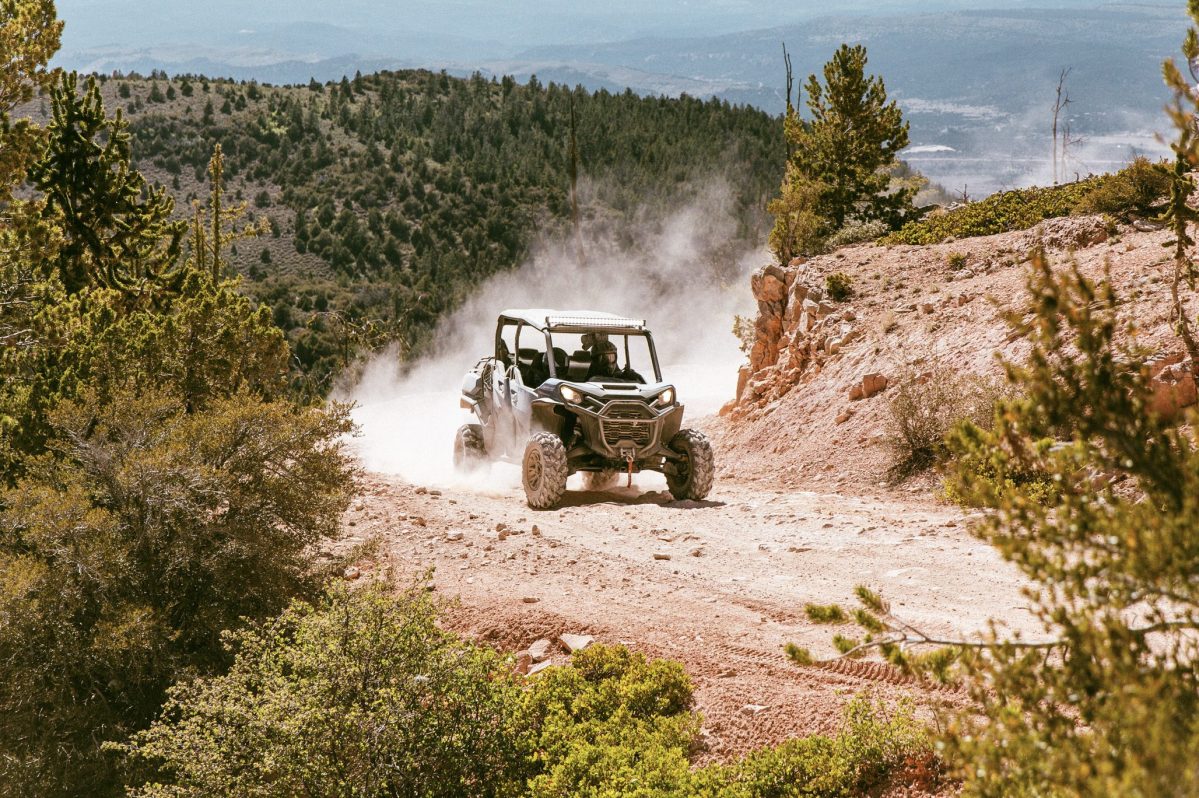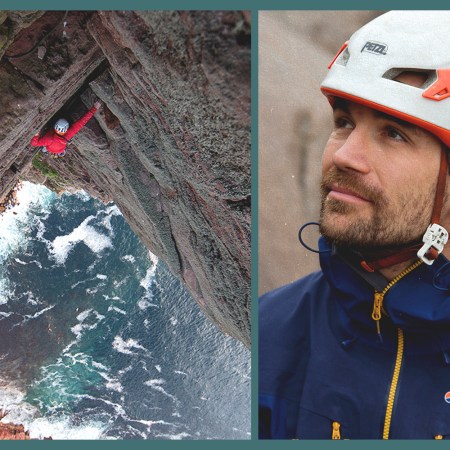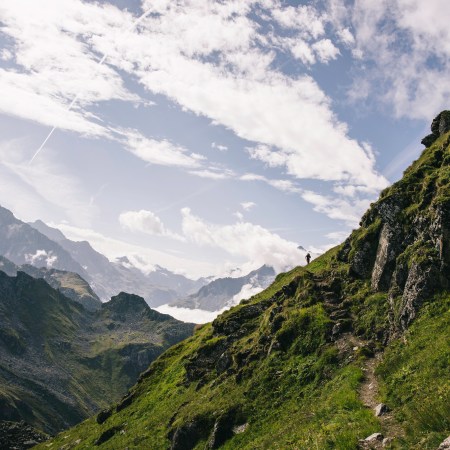Two hours away from Sin City, just across the Nevada state line in the town of St. George, Utah, it is hot, dusty and windy on a late summer’s day.
I’m one of a pack of unfamiliar ramblers who have converged in a massive garage as we wait to set out for parts unknown aboard a flock of four-wheeled Can-Am Commander UTVs. We’re on a guided off-roading adventure hosted by Wilderness Collective, and the customized Commanders, which come in a number of trim levels — DPS, XT-P, MAX XT — are ready for whatever the road (or lack thereof) has to offer over the following three days.
Before getting on the Commanders and heading out into the Utah backcountry, our leader and guide gives a handful of instructions. The lone driving-related directive paraphrases some very basic photography advice: “Point and drive.” Driver’s licenses checked, helmets handed out and cellphones confiscated for the duration of the trip, we then click into our seatbelts and fasten our gloves. It’s time to follow the leader.
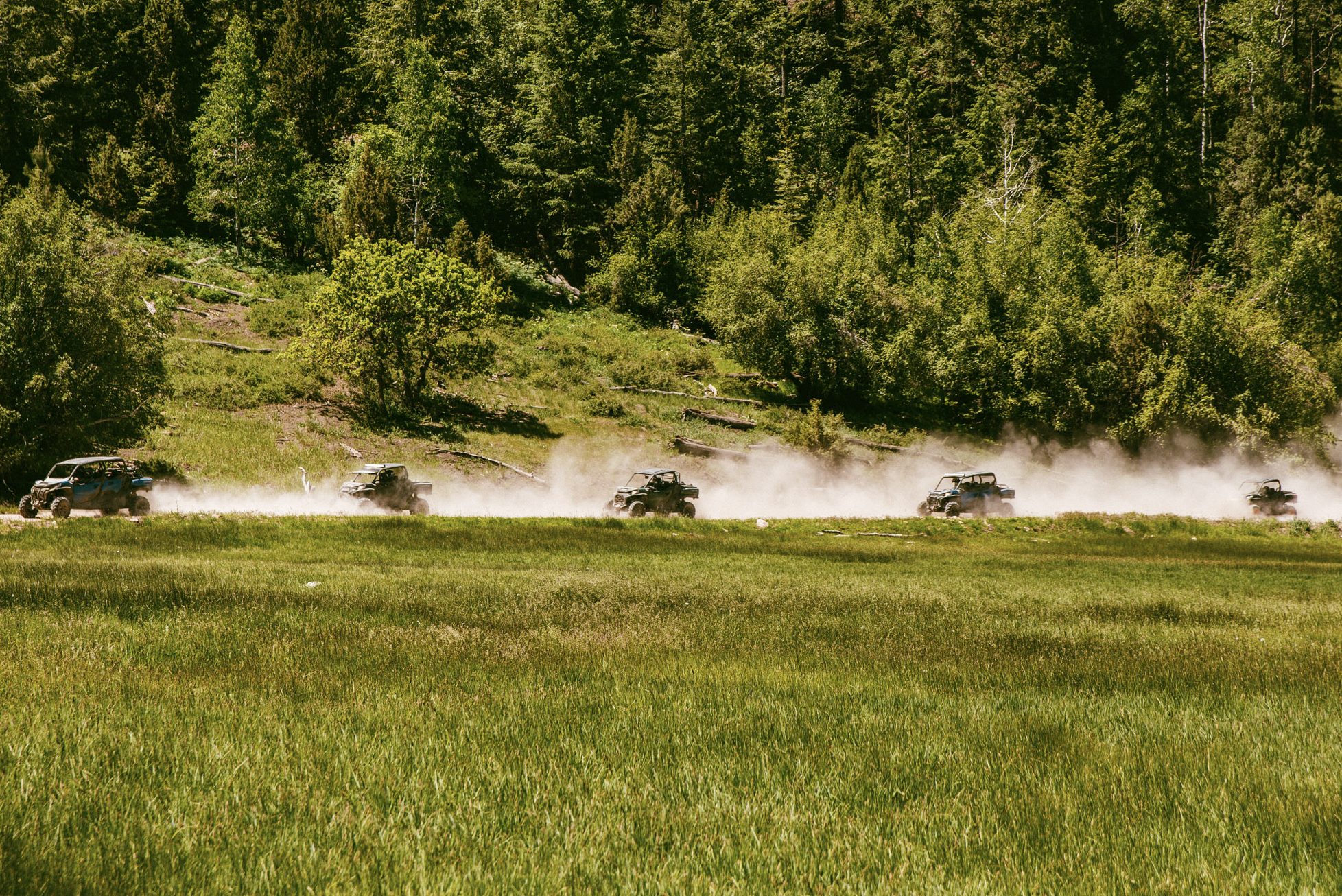
The next three days were spent on- and off-road in Utah and Arizona, covering ground in the Warner Valley, Dixie National Forest and Bryce Canyon National Park as well as on the Paunsaugunt Trail. It was fast, loud and dusty. And it was a great place to have some fun and get away from everything that’s happened back in the quote-unquote real world over the last two years.
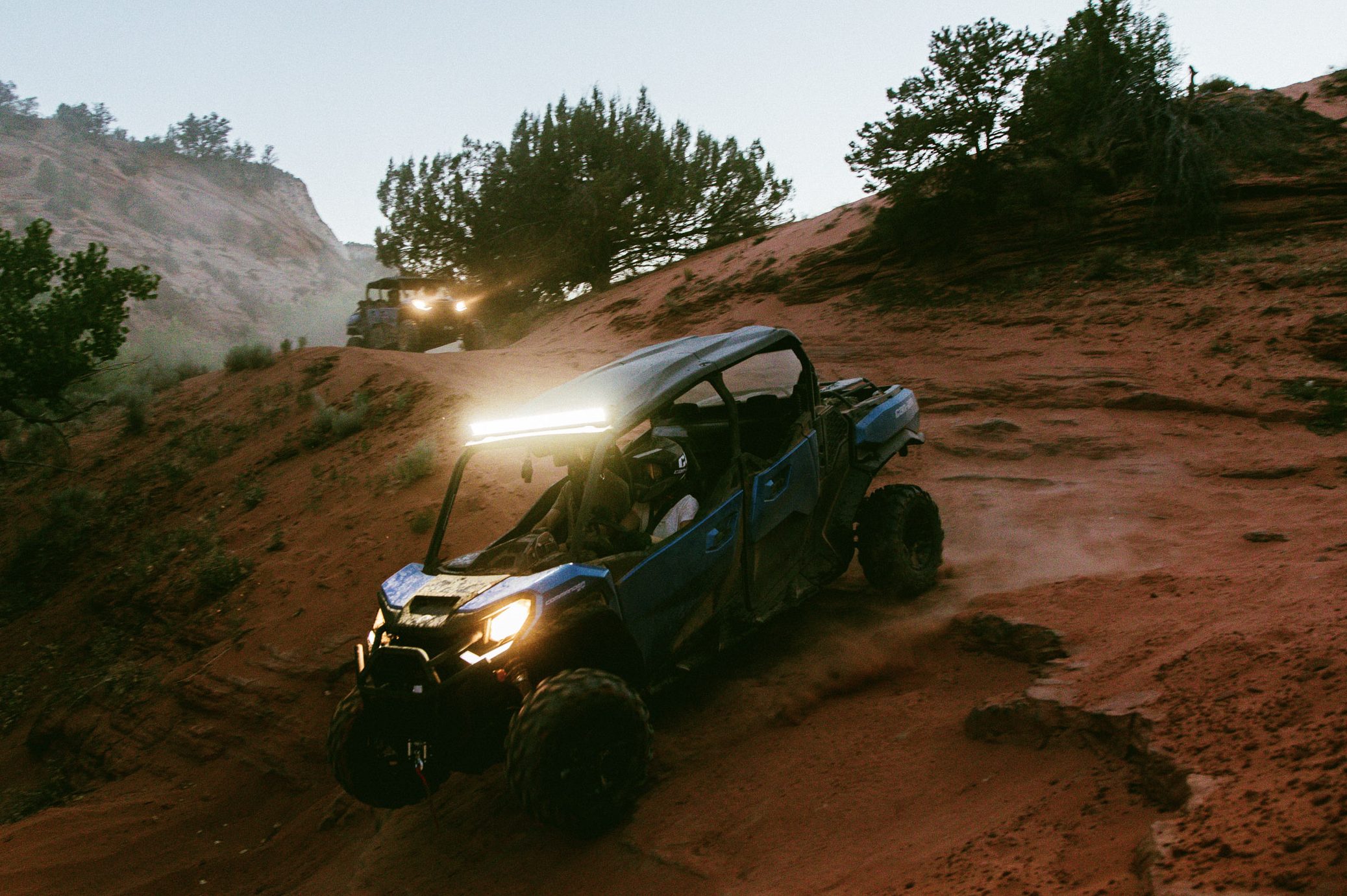
Hitting speeds of up to 80 miles per hour on the highway and 40 mph off of it (likely more for some drivers), our group drove throughout the days and into the nights, only stopping for gas, food and occasional instructions or directions. As there were no phones or radios being used, all communication came via hand gesture or eye contact, which put paying attention to the driver in front of and behind you at a premium. With the roar of the engines and hum of the tires on the terrain a constant companion, the experience was mindful and meditative at the same time.
Driving your machine and paying attention to the terrain in front of you was obviously the first objective. But upon realizing just how capable a Can-Am is at rolling over whatever you put in front of it, pushing the vehicle to its limits and testing your skill as a driver became a secondary pastime. Especially on certain trails that more closely resembled Mario Kart stages than navigable roads, it became easy to slip into a groove and think about nothing else beyond what was around the next corner, and the best way to take it on a hairpin.
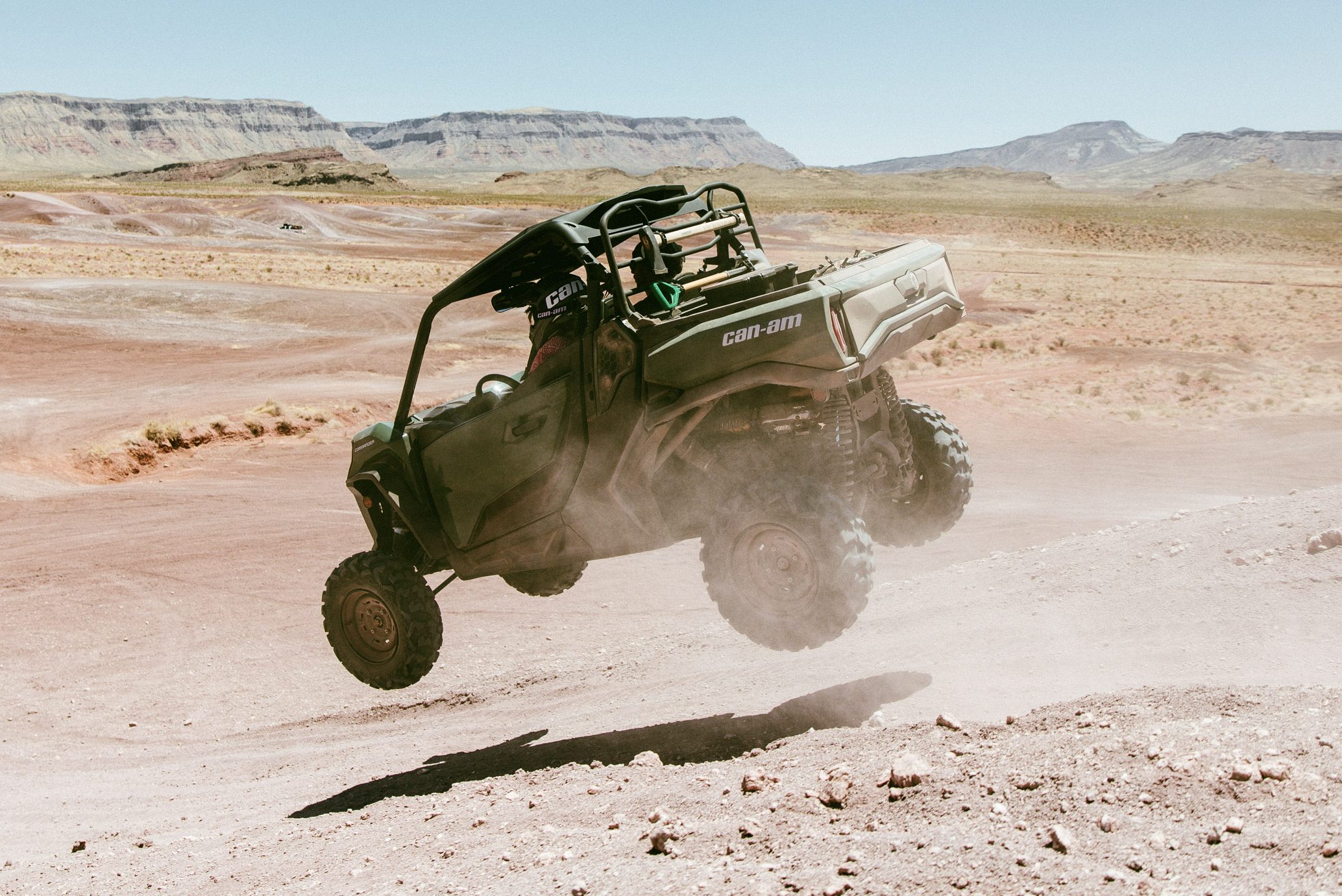
Having been given a mandate to push things as far as possible until feeling ourselves “pucker” (interpret that as you will), it was not uncommon to see one of the vehicles completely airborne for a glorious, albeit fleeting, moment of four-wheeled flight.
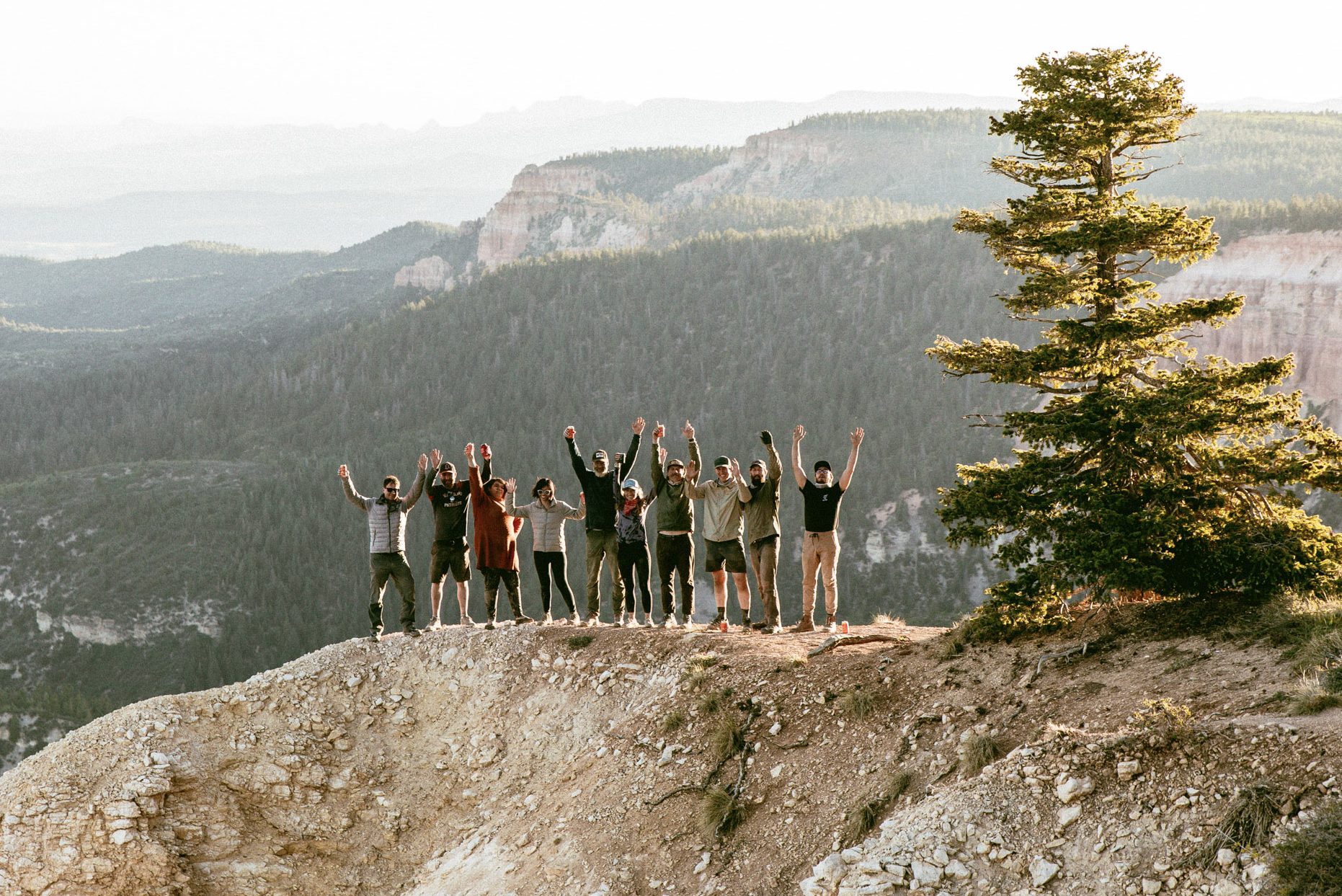
While focusing on the driving was a very introspective, independent experience, the aspect of being in a group provided a real sense of community, possibly aided by this being the first group experience the majority of the trip’s attendees had enjoyed since the pandemic started. By sharing vehicles, meals and the road over the course of three days and then sleeping under the unobstructed stars at night, our group became quick friends.
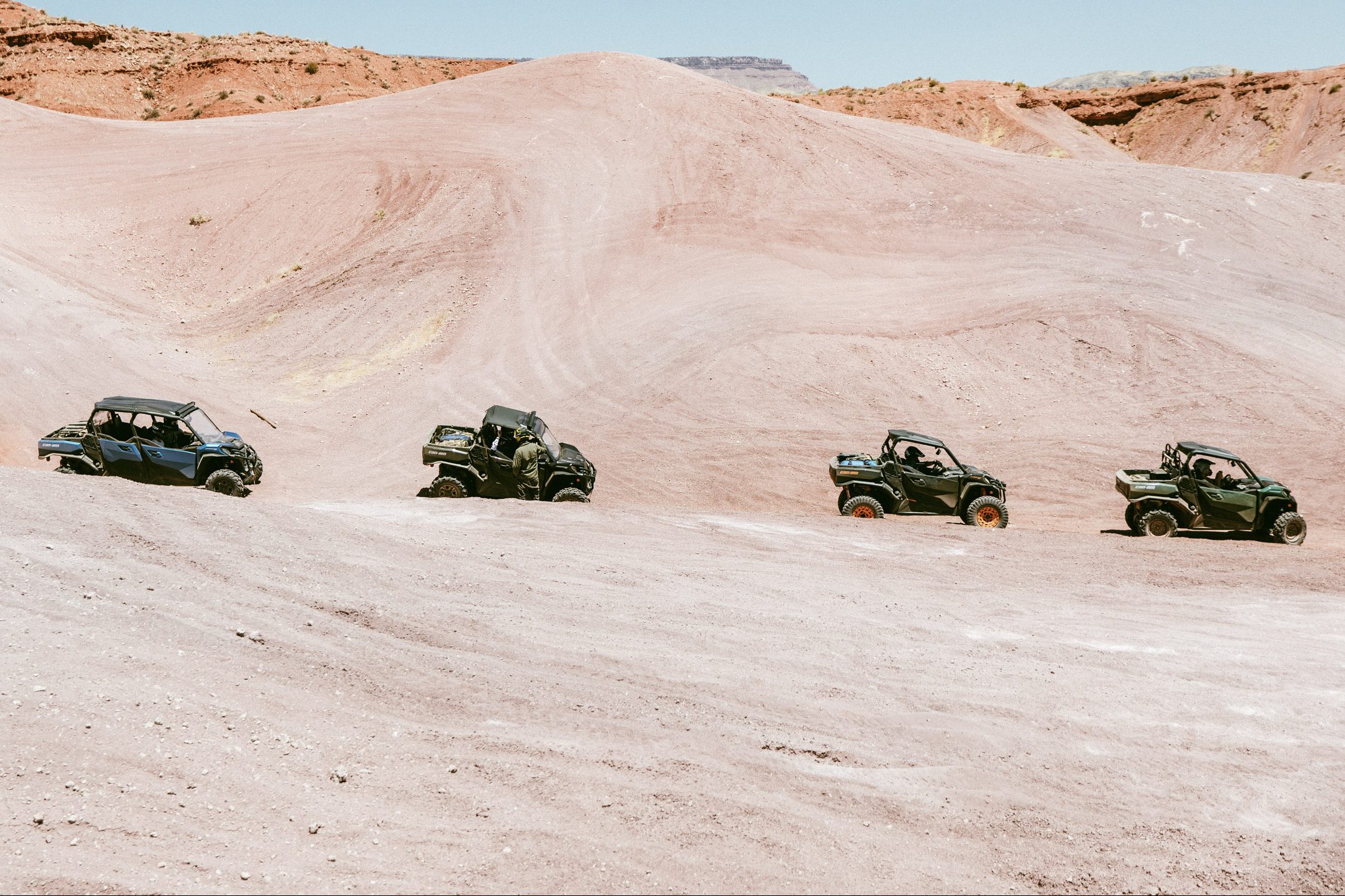
Following a time period in which the COVID-19 pandemic made it basically impossible to convene with strangers and make new friends, being able to connect with others while simultaneously having some much-needed time for personal reflection was even sweeter. The simplicity and strength of the Can-Ams, along with the sand, dirt, rock, grass and gravel scattered about American Southwest, combined to create an ideal setting for remedying all that.
The vehicles and terrain aren’t going anywhere. Perhaps it’s high time you signed up for one of Wilderness Collective’s two- or four-wheeled off-roading trips or one of BRP’s Uncharted Society adventures, with or without a global pandemic to leave in the dust.
This article was featured in the InsideHook newsletter. Sign up now.
